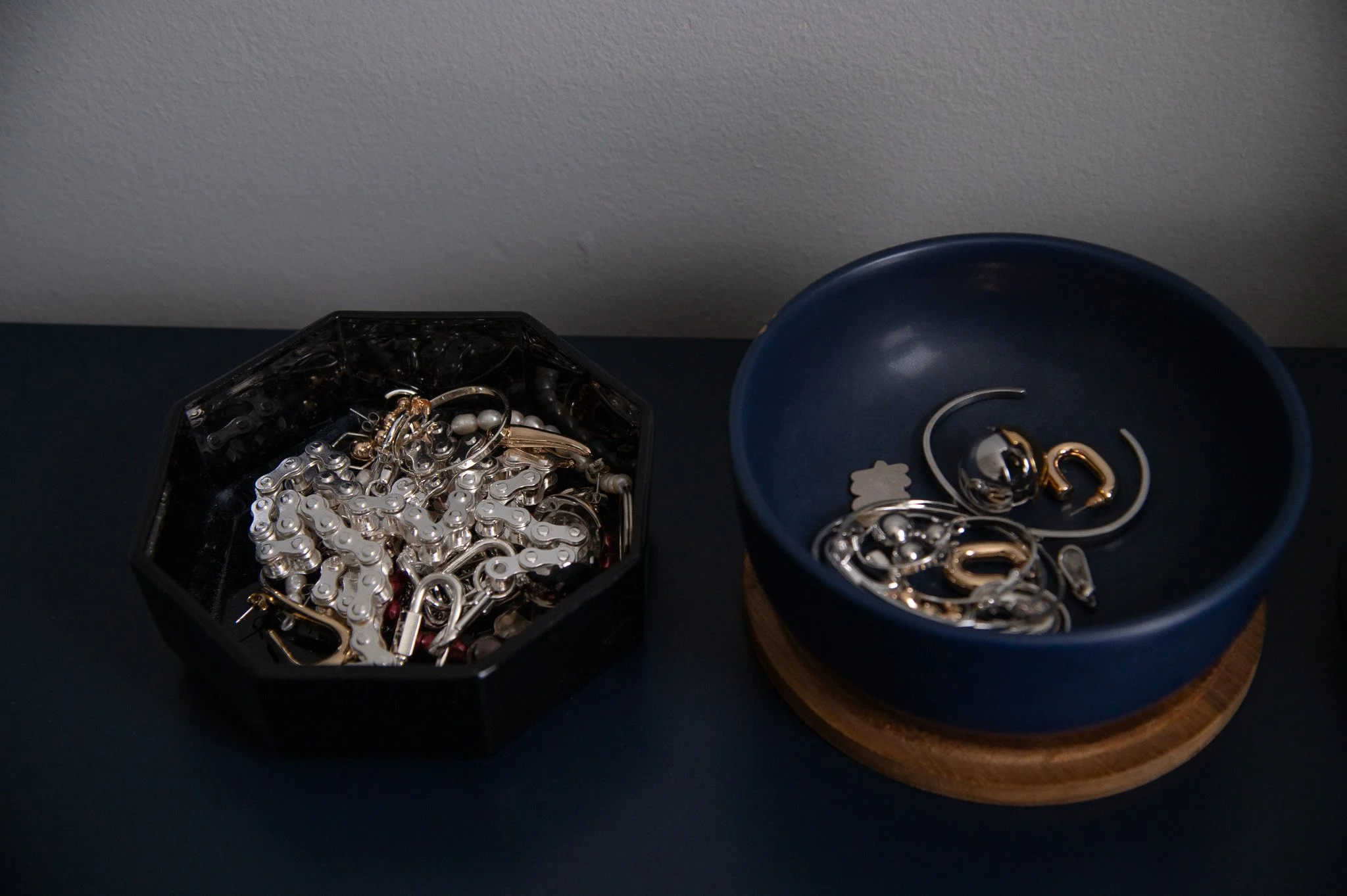Sheltering Stories: Photographs and Oral Histories of Asylum Seekers and Service Providers in New York City
I was commissioned by the LaGuardia & Wagner archives department to conduct interviews and take photographs under the topic of ‘housing’. I decided to focus in on the experiences of asylum seekers and those who provide services for refugees in New York City.
The first perspective is from a first generation American who works with an organization called Church World Services that provides funding, resources, and aid to newly arrived asylum seekers and refugees. Alyssa Whitcomb is a caseworker who works with undocumented children who have crossed the border, assesses their cases and connects them with resources and reunites them with parents/guardians.
“So it's actually something that we assess for when the minor is still in federal custody, so we try to do our best to kind of see what the financial situation of the sponsor is. Are they living in a shelter? Are they in temporary housing? Are they in permanent housing? So I would say it's much more likely for a quick release to happen if a sponsor has been here for a little while, they have more of a permanent housing situation. That's not to say that we won't release a child or that the shelters won't release a child if a sponsor is in a temporary housing situation. However, I know that the federal government really wants to know that the sponsor can financially support that child. So if they're living in a shelter, it's fine, but they just need to be able to show that they can support that child.” -Alyssa Whitcomb






The second perspective is from a first generation American who worked at a temporary migrant shelter at a hotel in Long Island City Queens.
“I worked there from for like a couple I think, so I was there from September 2022 to October, 2022. So approximately two months. Working in the Wingate Hotel. um in Queens, Long Island City, and the Wingate Hotel was repurposed as a migrant shelter um for that time that I was there” -Shelter worker
“There was crime, people trying to smuggle in alcohol, like migrants trying to smuggle in alcohol when it was against the um policies of the um, you know, of the Wingate hotel in of itself, like the people who were letting these people use the facility. um it wasn't allowed. So if they did see someone do that they would have to kick them out. or if it was like a case of like domestic violence or whatnot, they would have to kick them out. um immediately and um not let them back into any of the hotels. and um and they would ensure that this would happen by, you know, doing the check in, scanning their profile, getting their information, creating a history for them that could later on be used for immigration.” -Shelter worker


The third perspective is kept as ‘anonymous’ in order to protect the identity of this individual who came from Ecuador as an asylum seeker.
”So if you declare yourself homeless, you get access to this program in which we will help you to get like a nice housing or a transitional housing in the situation will get better.
You will get your own apartment and so on. I was like, for sure, where can I do?
I mean, they will like, of course, and actually you can apply to asylum. I never heard that.”
“You’d never heard of it?”
“Never. I never never. And I was like, how can I put that? I mean, never like, you have all the documentation, that proof, all the situation that you describe that you work through this guy, the government and the la la la, the harassment. I was like, yes, of course. I even have the police protection. I have all the documents from the court and this stuff. And they said that's enough. Let's start this now, but you have to . So for me, it was like, also badly with, you are going to be, oh, you are almost 40, you have to declare yourself homeless right? In another country. Imagine. On top of all. Everything else happening. I was like,. I'm just gonna die. kill myself, I found myself in in the Long island right.. Just kill me. I don't want to build. It was terrible. Yeah. So, but I think the first win that I did is I just lived that hotel, which I was paying like $150 per night. to move to this YMCA shelter in Jamaica Queens. I found other immigrants, other drug addicts, other prostitutes, other life, terrible people. Yeah. So it was changing that I never imagined myself going through a place like that. Yeah. But knowing that I have to go to that stuff before getting to the access for the systems to pay actually rent a room inside an apartment. almost like, fuck. Jesus give me, give me a strength. Give about work, because this is too much.” -Anonymous
”I was living in that place, and I was not doing bad. I was like, well, this is nice, because sometimes I got to save some money, to help remember that I have two kids that I help and I pay for their study they high school, there, every day.”- Anonymous
“You’re still helping the kids?”
“ Yes, of course… Remember, all my family I just lived here back. So you're sending the money to Ecuador still to get them in education. Yes.” -Anonymous
”Do you hope they'll be able to come here one day?”
“That's when my goal is.” -Anonymous






